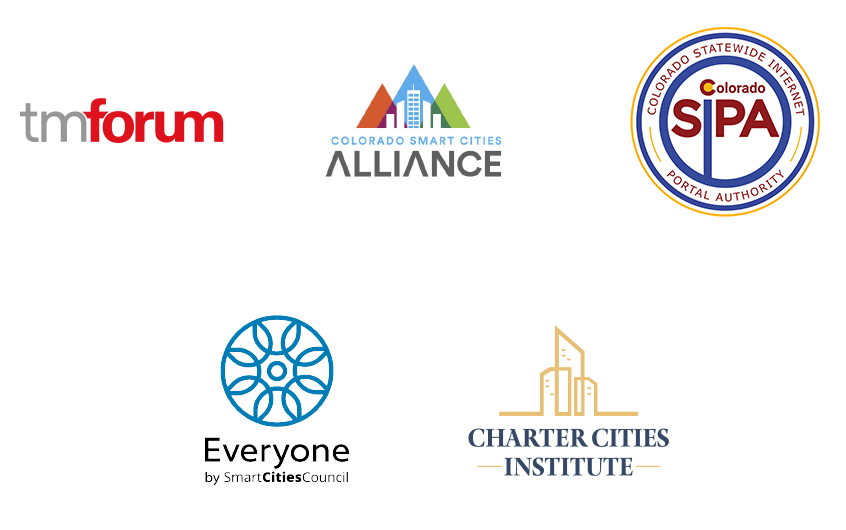
City as a Platform
Prepare your City for a Smart Future by partnering with GlobetomThe next evolution of Smart Cities will place increased focus on Livability, Workability, and Sustainability.
Cities that engage technology to support these goals will provide faster and more reliable services that will better serve their residents, businesses, and visitor needs.
Every Smart City has Goals
Improve Livability
Livability is measured by quality-of-life factors. Examples include: Living in a safe and stable community, access to fresh water, food, housing, transportation, health care, and education.
Digitally integrated communities provide residents with immediate access to information and services that will enrich their quality of life.
Improve Workability
A Smart City accelerates workability by boosting economic competitiveness and productivity.
By digitizing city functions (e.g., payments, licensing, permitting) you can provide businesses with a more favorable business climate, while expanded online educational opportunities creates a more diverse workforce.
Improve Sustainability
Improve methods for citizen mobility (sidewalks, bike lanes, carbon-free transit systems), smart infrastructure and building, reduced energy consumption, water and resource conservation, efficient waste management and recycling.
Digital cities can not only analytically track progress and success on sustainability initiatives, but also incentivize and reward citizens’ sustainable behavior.
Smart City Digital Needs
Data Integration
Integrating Internal and External Data will be the key to success for creating digital ecosystem and advanced data-based solutions.
Data lakes and data warehouses will likely be challenged with data onboarding, security, API library management, and process-based real-time modeling and analytics necessary to support an agile data ecosystem.
Information Management
Smart Cities will need to handle increasing amounts of information in the form of data from internal departments, external partners, adjacent agencies, and growing deployments of IoT devices and sensors.
Information Management, Security, and Privacy will be key challenges facing cities as data volumes grow.
Efficiency and Synchronization
A Smart City will need to create, use, and provide accurate and consistent information internally (across departments) and externally (to partner agencies, residents, and businesses) to enable reliable decision making.
Globetom as a Smart City partner
Globetom has attained invaluable experience in the development of city use cases gained through industry and city collaborative efforts, leveraging our platforms and extensive experience in data and systems integration.
This, coupled with our unique and differentiating technologies makes Globetom an ideal partner for cities wanting to transform to a Smart City.

Globetom is a signatory to the TM Forum industry body’s City as a Platform manifesto

Globetom’s participation driving standards and innovation for the industry
Globetom international innovation and participation
Globetom is Diamond-certified for Open API Conformance by the TM Forum.
The TM Forum provides an open, collaborative environment along with practical tools and information to help its members across industries in their digital transformation initiatives.
Globetom is an active contributor to digital transformation standards that originated in Telecommunications, and are now being deployed across industries, including Smart Governments.
By using technologies which adopt industry standards, cities can deliver services faster and more reliably, with an increasing focus on residents’ actual needs.
2019
A Smart City Enabling Digital Platform
Connected Citizens
The proof of concept project was championed by NTT Group, Orange, the City of Nice and the City of Saint Quentin included the catalyst participants Globetom, ForgeRock, BearingPoint, Infosim and Civimetrix Telecom.
This Catalyst developed a cloud-based platform, or data hub, for smart cities that used TM Forum Open APIs and software-defined networking, supported distributed ledger technology like blockchain and provided an IoT gateway and identity and access management.
It enabled new business models supporting the TM Forum’s Smart City Manifesto and provided the digital capability for services that deliver cleaner, safer, more adaptive and efficient city environments for citizens, enterprises and visitors (connectedcitizen-catalyst.com).
Key Features
Securely support Internal and External Data Consumers
A new market of Data Consumers has emerged; Digitally integrated ecosystems improve availability and quality of information given to application providers, developers and consumers.
Provide a Secure Path for Data Monetization
City data is an organizational asset which can be leveraged to unlock value for city stakeholders while at the same time create new revenue streams.
Access an expansive API Library
Draw from a managed catalog of dozens of standards-based APIs for process and application uses.
Event Processing
Complex event processing of streaming data (e.g., IoT data, Trouble Tickets, App Data) for real-time decisioning and enforcement of appropriate, policy driven and machine learning based controls.
Enable Urban Data Exchanges to Improve Ecosystem Communications
Through API access control and monetization enable inter-department and inter-city data exchange allowing creation of more powerful solutions.
Leverage Master Data Management
Master Data practices ensure data accuracy and consistency, while providing a “360-degree view” of residents, businesses, sensor data and other managed entities. Master Data Management principles are applied to critical city data resources to guarantee data quality and integrity for ecosystem use.
Analytics
Enable (near) real-time analytics and dashboards from city streaming data for continuously delivering key metrics and trends to city leadership.
Distributed Ledger Technologies for Smart Contracts and Citizen Rewarding
Leverage multi-city shared Blockchains to drive desired citizen behaviour with crypto currency-based reward programs. Drive Smart Contracts for city initiatives such as property deeds management, public tender management and other uses cases. Expand Blockchain as an exchange enabling city coalitions for applying citizen rewards across counties and cities.
Our Partners


Prepare your city for a Smart future
Please complete the form below to schedule a meeting with the Globetom team